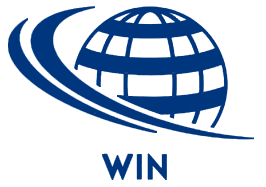

INTAKE Winter October-March, Summer April-September
400 state accredited higher education institutions of which 100 are globally ranked universities.. Nearly 40,000 foreign students seek university education in Germany. Most of the institutions in Germany are public and have little or no tuition for education; it is literally free.

MUST complete
Studienkolleg - is a one year foundation course offered for students who do not have 13 years of completed education. The program is offered in Germany in Universities and students have to pay for the one year of study. . The students must give and pass the exam called Feststellungspruefung to be eligible for admission to universities and universities of applied sciences. Students who do extremely well in Studienkolleg in one semester can take the Feststellungsprüfung and seek admission to University.
Propadeutikum - for Master’s program preparatory course can be taken to qualify for admission to universities in Germany. Students applying for Bachelors can also qualify for admission by giving the Propadutikum exam for entrance to the universities in Germany.
Dual Vocational Training Programs - Berufsschule practical training takes place at workshops or industrial company sites. You will be affiliated to a company where hands on practical training will be provided while you also make money from the first year. Remuneration starts from 600 to 800 Euro in the first year to 800-1100 Euro in the 4th year.Some examples of Vocational Training Programs that provide employment while studying are Mechatronics Engineers, Clinical Nurses, Train Operators, Industrial Electronics Engineers. Hotel Staff, Cook/Chef, Nursing, Spa & Wellness, Farming / Gardening, Animal Husbandry, Logistics/Warehouse Specialist, F&B Service etc.
Medical Degree in Germany MBBS
Guarantees high employability, high salary, practica aspect of the degree is given through personal experiences and practice through their centers. One of the highest paid professions, an MBBS from Germany gives one easy access to practising in other EU countries such as France, Switzerland, Italy, Spain, Netherlands, Austria, Ireland and more.
Recognized by
Engineering in Germany
Engineering is by far the most popular and one of the best degrees to study in Germany, and it usually leads to an MS degree. Mechanical engineering, automotive engineering, and electrical engineering are among the engineering disciplines chosen by students
MBA and other Masters programmes in Germany
Most Masters programs including MBA in Germany require 4 year undergraduate diploma/degree with work experience or research to qualify for admissions.
The good thing about doing Masters in Germany is that it is done in English Language.
Have a Question? Contact Us